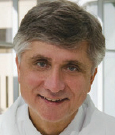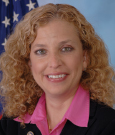Margaret Foti, PhD, MD (hc), CEO of the American Association for Cancer Research (AACR), welcomed about 150 congressional staffers to a March briefing in Washington, DC, with a plea for increased federal funding.
“Extraordinary progress is being made in cancer research today, as evidenced by the more than 14 million survivors in the United States, but despite remarkable advances, cancer remains a significant problem,” she noted. “This year alone, more than 1.6 million Americans will receive a cancer diagnosis, and more than 580,000 will die of the disease. Our work is far from finished, and we need to ensure that NIH [National Institutes of Health] and NCI [National Cancer Institute] are funded at levels that will ensure their ability to make more lifesaving progress. Cancer patients are in desperate need of this commitment.”
She added that many of AACR’s 34,000 members, which include scientists, clinicians, other health professionals, and advocates, depend to a greater or lesser extent on federal funding, which has decreased by 20% overall during the past decade. Moreover, although the cancer death rate has decreased by 1% each year over the same period, it runs up $216 billion annually in direct and indirect costs.
Two Congressional Cancer Survivors
Rep. Mike Fitzpatrick (R-PA), a colon cancer survivor, thanked AACR for its research efforts, as well as its pledge to increase federal funding. He said that having had cancer has changed his perspective of what is important and has made him a more compassionate legislator.
Rep. Debbie Wasserman Schultz (D-FL) is a breast cancer survivor and also expressed gratitude toward AACR. “One of the good things that happened to me after a year of treatment and 2 years so far of tamoxifen was learning about the research that showed a clear benefit of an extra 5 years of tamoxifen. This takes a lot of the scariness out of being a survivor.”
Rep. Wasserman Schultz, along with Sen. Amy Klobuchar (D-MN) sponsored S. 994, the Breast Cancer Education and Awareness Requires Learning Young (EARLY) Act of 2009. “Given that nearly 200,000 women under the age of 40 get breast cancer, we wanted to ensure that they learn the facts about it, know how their bodies function, and advocate for their own health.”
Clinical/Translational Research Expert Supports Funding
Charles L. Sawyers, MD, AACR President and Chairman of the Human Oncology, Pathogenesis Program, Memorial Sloan Kettering Cancer Center, and Investigator at the Howard Hughes Medical Institute, New York, who concentrates on signaling pathways, said that this is a pivotal moment in cancer research and the wrong time to “de-escalate efforts.”
He noted that in the past 18 months, the U.S. Food and Drug Administration has approved 13 new drugs and six new uses for agents previously approved. Moreover, there are now 41 targeted therapy drugs, among them imatinib (Gleevec), dasatinib (Sprycel), nilotinib (Tasigna), bosutinib (Bosulif), and ponatinib (Iclusig).
“We are making enormous progress in genomics,” said Dr. Sawyers. “It is now possible to efficiently and economically read every base of the DNA from any patient’s cancer and to compare it to the sequence of their normal cells. Because of this technology, we know that we can eventually perform large-scale genomic analyses that will be essential catalysts for further progress. We cannot slow down now.”
In addition, coordinated efforts will soon exploit whole-genome sequencing to identify genetic mutations in a variety of cancer types and subtypes. They are the Cancer Genome Atlas, the International Cancer Genome Consortium, and the St. Jude Children’s Research Hospital–Washington University Pediatric Cancer Genome Project.
Dr. Sawyers said that federal funds continue to be necessary not only for biomedical research, but for expansion of electronic health records, a highly skilled and diverse workforce, increased patient participation in clinical trials, and improved quality and consistency of biospecimen resources.
Two Clinician-Scientists
Stephen Schuster, MD, Director of the Lymphoma Program at Abramson Cancer Center, University of Pennsylvania School of Medicine, Philadelphia, whose major interest is B-cell leukemia and lymphoma, agreed that progress has been remarkable to date, but that “bad stuff will start to happen in 5 years if we don’t keep making the quantum leaps that have been the hallmark of the past 2 decades.”
He noted that all the speakers had different perspectives on cancer, but all had come to the same conclusion: Without continued funding, progress will slow dangerously.
Crystal Mackall, MD, Chief of the NCI Pediatric Oncology Branch and Immunology Section Head, described her work in immunotherapy. She told a moving story of a little boy with B-cell leukemia whose older brother died of a different form of the disease. His parents were, of course, doubly devastated when he was diagnosed—even more so when he ran out of treatment options. But he enrolled in an NCI cell therapy clinical trial—and after only one treatment, achieved lasting remission. Said Dr. Mackall, if it had not been for the institute’s ability to discover the therapy and run the trials, this child, too, would have died.
A CML Patient
Hans Loland is now in remission from chronic myelogenous leukemia (CML). Like the little boy with leukemia described by Dr. Mackall, he too was preceded in death by someone close: his best friend, who also had CML.
After being diagnosed with an unusual mutation and unresponsive to both imatinib and dasatinib, his physician said they were out of things to try. But Mr. Loland heard about a phase I trial of ponatinib at the Oregon Health & Science University, Portland. It was thought to block the protein that causes most cases of CML.
He drove there from his home in Seattle to meet with the principal investigator and came away from the meeting encouraged. He decided to give himself 3 months on the trial, even though the routine care would not be covered by insurance. He also decided to pay $30,000 to $40,000 out of pocket—until his employee self-insurance came to his financial rescue and picked up the tab.
Two years ago, he and his wife felt secure enough to add another son to their family. ■
Disclosure: Dr. Foti reported no potential conflicts of interest. Dr. Sawyers is on the board of directors of Novartis and on the scientific advisory boards of Agios, Beigene, Blueprint, Nextech, Seragon, and Tracon.





